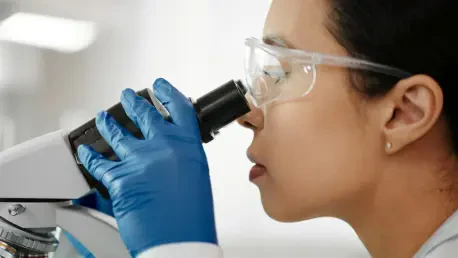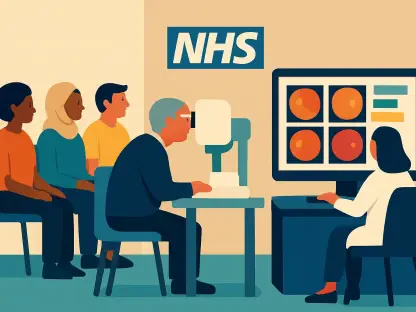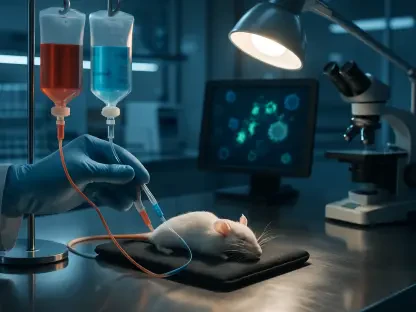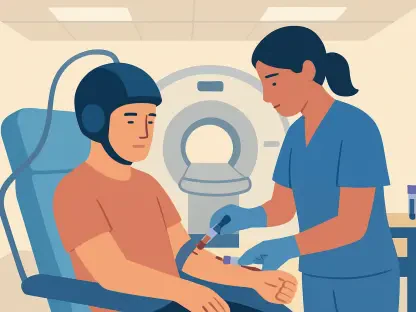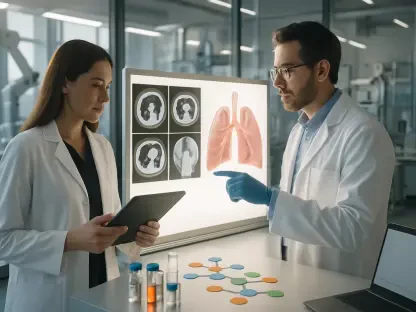Drawing from years of experience in biopharmaceutical research and innovation, Ivan Kairatov is known for his insightful contributions to healthcare advancements. With the recent recognition of Tagomics Ltd. through a substantial grant from Innovate UK for colorectal cancer research, Ivan is poised to provide valuable insights into the evolving landscape of biomarker discovery and diagnostic technologies.
Can you tell us a bit about Tagomics Ltd. and its mission in the field of biomarker discovery and diagnostics?
Tagomics is committed to pioneering advancements in biomarker discovery and diagnostic innovation. Our focus is on unlocking disease-associated biomarkers through cutting-edge multiomic profiling and epigenetic analysis, aiming to enhance early detection and treatment across various diseases, including colorectal cancer.
What is the Innovate UK Biomedical Catalyst program, and how did Tagomics become involved?
The Innovate UK Biomedical Catalyst program is designed to propel innovative healthcare solutions by providing funding for research and development. Tagomics became involved due to our novel approach and promising technology in diagnostics, which caught the attention of the program’s evaluators. Through rigorous application and demonstration of our capabilities, we secured the funding to advance our projects.
How will the £860k funding be utilized by Tagomics? What is the company contributing in addition to the grant?
The funding will be directed towards the further customization of our Interlace platform. This involves developing a sensitive diagnostic test for colorectal cancer. Tagomics is also contributing additional resources to ensure robust development and application of our technology, supporting the integration of new research methodologies and validating biomarkers through pilot studies with strategic partners.
Can you explain what the Interlace platform is and how it functions in relation to diagnostic testing?
Interlace is an advanced multiomics workflow that deciphers complex DNA biomarker profiles without altering the DNA sequence itself. By focusing on epigenetic profiling, Interlace enriches unmethylated DNA, paving the way for precise genomic and epigenetic data analysis, crucial for accurate disease detection and monitoring within diagnostic settings.
How does epigenetic profiling enrich unmethylated DNA for analysis without altering the DNA sequence?
Our unique approach facilitates the separation of epigenetic markers from the DNA sequence itself. This enrichment process involves sophisticated techniques that isolate specific DNA segments, enabling a more comprehensive analysis of unmethylated regions without the risk of sequence modification, thus maintaining the integrity of genetic information.
What specific aspects of colorectal cancer are you focusing on with the Interlace platform?
The Interlace platform targets genetic and epigenetic mutations closely linked to colorectal cancer development. By identifying these markers and studying patient multiomic profiles, we aim to understand the disease’s progression better and detect it at its earliest stages, improving chances for effective treatment and patient outcomes.
Can you describe the pilot study of the diagnostic test for colorectal cancer detection?
The pilot study involves profiling 250 patients under clinical observation, suspected of having colorectal cancer. This effort is focused on validating our identified biomarkers and demonstrating the viability of multiomic profiling for early disease detection, serving as a pivotal step in translating our research into clinical practice.
Who will lead the pilot study, and what are the goals of this research?
Dr. Arash Assadsangabi, a respected physician and gastroenterologist at Salford Royal NHS Foundation Trust, will lead this study. The primary objectives are to confirm the effectiveness of our diagnostic test, refine biomarker identification, and establish a new standard for early colorectal cancer detection using innovative methodologies.
What is multiomic profiling, and why is it important in the early detection of diseases like colorectal cancer?
Multiomic profiling integrates data from various biological layers, including genomics, epigenomics, and proteomics. This comprehensive approach allows for a detailed understanding of disease mechanisms. In colorectal cancer, such profiling is crucial for detecting subtle changes that indicate the disease’s onset, enabling intervention when treatment is most effective.
How will the pilot study validate the biomarkers you have identified?
The study will employ a combination of traditional and novel analytic techniques to thoroughly assess identified biomarkers. By comparing results from patient samples with our predictive models, we aim to establish a clear correlation with colorectal cancer biomarkers, ensuring their reliability and applicability in diagnostics.
What are the expected outcomes and benefits of detecting colorectal cancer at its earliest stages?
Early detection of colorectal cancer leads to significantly improved treatment options and outcomes. By targeting the disease before major progression, we can employ therapies that are less invasive and more effective, reducing mortality rates and enhancing quality of life for patients through timely and precise interventions.
How does the partnership with Agilent Technologies strengthen the development of the Interlace platform?
Agilent Technologies provides advanced tools and resources that complement Tagomics’ efforts. Their SureSelect target enrichment solutions, combined with our epigenetic profiling, create a robust analytical framework, strengthening the platform’s sensitivity and scope in cancer detection and ensuing research applications.
What role does Agilent Technologies play in supporting Tagomics’ research and development efforts?
Agilent is instrumental in offering technical expertise and cutting-edge technologies that enhance our research capabilities. Their bioanalytical solutions bolster our efforts in developing reliable diagnostic tests, contributing to the scalability and precision of our Interlace platform for broader applications.
Can you elaborate on the collaboration between Tagomics and Agilent in terms of cancer research and patient outcomes?
Our collaboration focuses on merging Tagomics’ innovative workflow with Agilent’s enrichment technologies to create comprehensive diagnostic solutions. This synergy not only advances cancer research but also aims to deliver actionable insights that significantly improve early detection and treatment success rates, thus enhancing patient outcomes.
What are the next steps for Tagomics after the successful completion of the project?
Upon completion, Tagomics plans to expand the Interlace platform’s applications to other cancers and diseases, leveraging data generated from our colorectal cancer research. Continued collaboration with partners will facilitate the transition from pilot to commercial phases, aiming for widespread clinical adoption.
How do you anticipate expanding the capabilities and applications of the Interlace platform in the future?
We foresee the platform’s potential in addressing a wider range of diseases, including other cancers like breast and lung. By integrating additional omics layers and refining our biomarker detection capabilities, the Interlace platform will evolve as a universal diagnostic tool adaptable to various clinical needs.
What is the long-term vision of Tagomics concerning patient outcomes and the early detection of cancers?
Our vision is to transform cancer diagnostics by ensuring early, accurate detection is accessible globally. By prioritizing research that bridges the gap between innovation and patient outcomes, Tagomics aims to cultivate a future where cancer is intercepted before it poses significant threats to patient health.
What challenges do you foresee in the development of innovative diagnostic tests for colorectal cancer?
Navigating regulatory landscapes, ensuring data accuracy across diverse populations, and aligning new discoveries with clinical standards are prominent challenges. The complexity of patient genetics necessitates constant adaptation and refinement of methodologies, which requires both time and resources.
How does Tagomics plan to address these challenges moving forward?
We plan to engage in continuous research, leveraging advancements in genomics and data science. Collaborations with healthcare partners ensure our solutions remain clinically relevant and effective, while embracing adaptive technologies allows us to overcome regulatory and analytical hurdles efficiently.
What message would you like to convey to patients and healthcare providers about the future of colorectal cancer diagnostics?
We’re optimistic about the future of colorectal cancer diagnostics. Emerging technologies promise earlier and more accurate detection, leading to improved treatment outcomes. For patients and providers, this means access to personalized healthcare solutions that empower timely intervention and enhance life expectancy.
